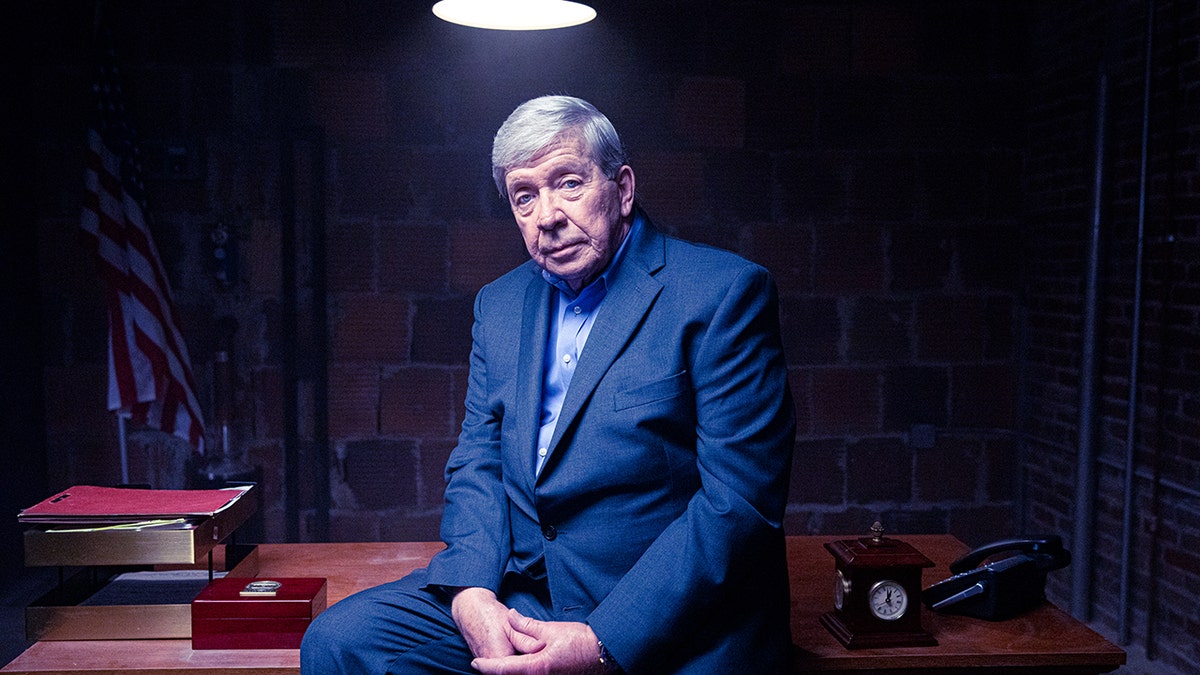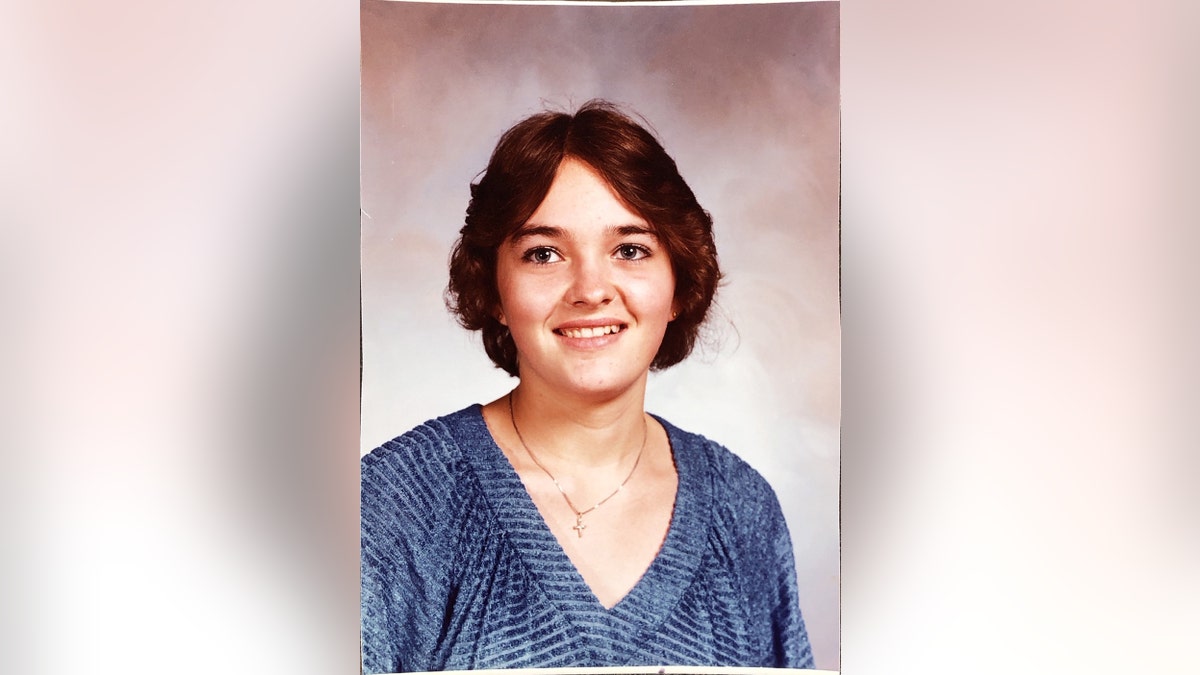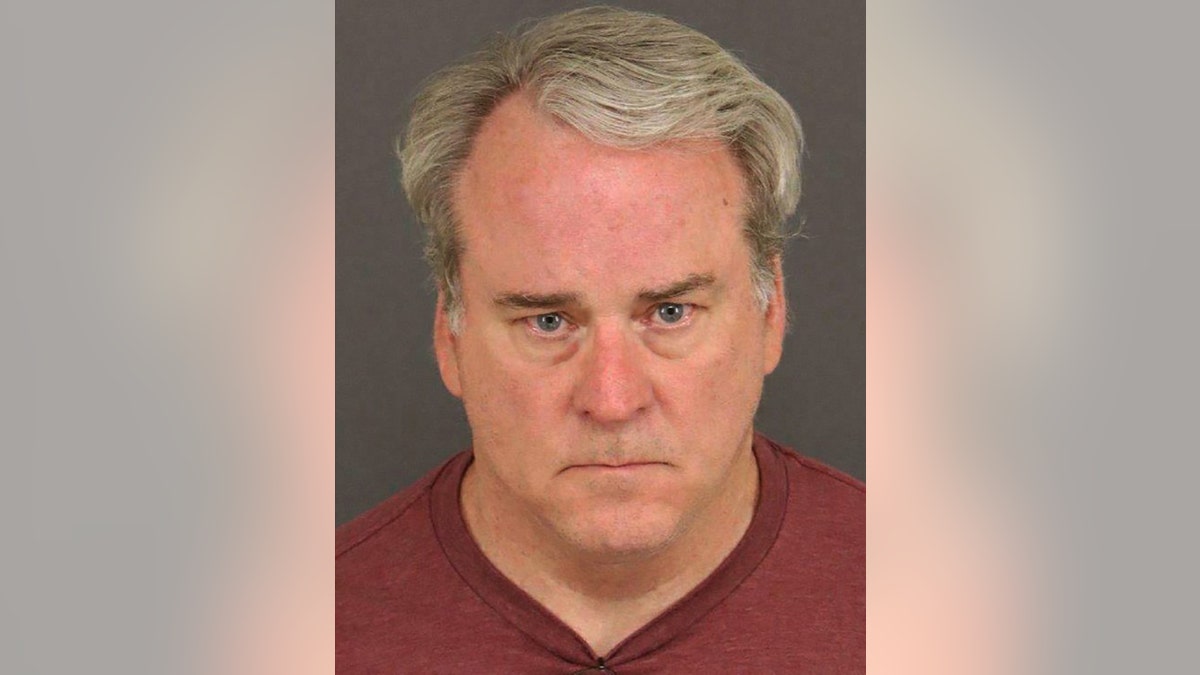Fox News Flash top headlines for August 10
Fox News Flash top headlines are here. Check out what's clicking on Foxnews.com.
Former police detective Joe Kenda vividly remembers being called to the witness stand in a Colorado Springs courtroom to revisit a 1987 murder that remained unsolved for more than three decades.
The star of Investigation Discovery’s (ID) "Homicide Hunter" testified at the 2021 trial of Michael Whyte, a suburban Denver man who was arrested for the strangulation of Darlene Krashoc, a soldier stationed at Fort Carson outside Colorado Springs.
Kenda, who was part of the initial investigation, packaged and preserved every piece of fluid evidence found at the crime scene, a costly and complicated endeavor at the time.
But with the advent of new DNA technology, investigators were able to definitively identify the 20-year-old’s killer.

Joe Kenda is looking back at the case of Darlene Krashoc for "Homicide Hunter: Never Give Up." (ID)
"When I walked into that courtroom, you could hear a pin drop because everybody looked at me, like, ‘That guy’s on TV,’" Kenda recalled to Fox News Digital. "I’ve walked into a courtroom many times. Never had a reaction like that. But it was fun to look at Michael Whyte straight in the eye and say, without saying out loud, ‘We don’t forgive. And we don’t forget.’"
The 23-year veteran of the Colorado Springs Police Department spent 21 years chasing murders as a homicide detective and commander of the major crimes unit. The 75-year-old and his team solved 356 of his 387 homicide cases, getting a 92% solve rate, one of the highest in the country.
After retiring from law enforcement, Kenda starred in "Homicide Hunter," a true-crime docuseries that ran for nine seasons from 2011 until 2020.
Kenda is returning to television for the new ID special "Homicide Hunter: Never Give Up," which will examine Krashoc’s case and how it was finally solved after going cold.
"What made this murder different was its extreme violence," Kenda explained. "Murder is awful, of course, but there are some that just go to the extreme. This was one of those. I thought, ‘Who are we looking for here, Dracula?’ It was just awful, and I have seen many things."
Krashoc’s body was found behind a Colorado Springs restaurant March 17, 1987. Investigators said she had gone to a nightclub the previous evening with other soldiers from her unit.
‘HOMICIDE HUNTER’ STAR LT. JOE KENDA REVEALS THE ONE CASE THAT HAUNTS HIM THE MOST

Darlene Krashoc was murdered March 17, 1987. (ID)
She was last seen leaving the club between midnight and 1 a.m., and police found her body during a routine patrol. Investigators said they believed her body had been moved to a spot behind the restaurant.
At the scene of the crime, authorities found three cigarette butts on the ground near Krashoc’s partially nude body. A coat hanger had been twisted around Krashoc’s mouth and neck, resembling a horse’s bridle. She had been severely beaten, bitten and sexually assaulted. She might have also been thrown from a moving vehicle.
Krashoc had joined the Army after graduating from high school out of state as a wheeled mechanic. Kenda said loved ones described her as a "pleasant young lady trying to make a future for herself by enlisting in the Army."
"She was a hard worker and did what many girls her age do – go out," said Kenda. "This was St. Patrick’s Day, where everybody's Irish and everybody winds up in a bar. There were 400 people at the club she was in. We identified most but certainly not all.
"We beat our heads for months and months and years to solve this case. And we could never turn in anybody who was connected. It seemed that the killer was a ghost. Nobody knew who he was. There seemed to be no connection between them — a difficult kind of case. No emotion, no contact, no knowledge. These are two ships passing in the night, but one of them happens to be a monster. We had to turn to science for a resolution."
REAL ‘MINDHUNTER’ JOHN DOUGLAS EXPLAINS WHY WHITE SUPREMACIST SERIAL KILLER WAS ‘A DIFFERENT ANIMAL’

Darlene Krashoc was an Army soldier stationed at Fort Carson, Colo. (ID)
Kenda said that Krashoc’s unsolved murder haunted him long after he retired.
"You can’t help but wonder, ‘What mistake did I make? What did I overlook?’" Kenda admitted. "But DNA is magic of the modern day. It has resolved three of those 31 [unsolved cases]. I’m now down to 28, but that’s still 28 murders unsolved. They all have an impact on me.
"It’s very, very difficult. They keep you up at night. And to me, that’s the important number, not the 356 I solved. It’s the price you pay for getting into this kind of work. You want to be able to see that all of your cases are resolved."
Krashoc’s case was reopened twice, first in 2004 and then 2011, when male DNA was discovered on several pieces of evidence.
The Army Criminal Investigation Laboratory reanalyzed the DNA in 2016, and it was sent to a private company that specializes in using DNA to create images of what someone might look like. The company made two composites, one showing the person at about age 25 and another at about 50 to 55.

Modern DNA technology was the key to solving Darlene Krashoc's murder decades later. (ID)
Police said the process, called phenotyping, uses DNA to predict traits such as ancestry, hair and eye color and face shape. Authorities made at least one of the pictures public in 2017. Police and Army investigators retained Parabon NanoLabs of Reston, Virginia, to sort through databases maintained by consumer DNA websites for genetic profiles similar to the killer, The Gazette reported.
In 2019, the company’s research led it to Whyte, who was a 24-year-old soldier at Fort Carson at the time of Krashoc’s murder. His existence wasn’t known to the police.
The outlet revealed that Colorado Springs detectives secretly followed Whyte to a restaurant. Saliva on the rim of a cup he left in the trash proved he was responsible. It was revealed that, in 1987, Whyte lived just three miles from the site of the murder.
Kenda said Whyte managed to escape police for decades because "he never did anything" after the slaying.
"Michael Whyte never had a parking ticket in his history," Kenda explained. "He was never arrested for anything. He wasn’t a registered sex offender. He’s not a former prison felon. He’s not anything. He’s just a dude who works for an electronics firm. He had a couple of marriages that didn’t go well, but nothing occurred in those marriages.
"How was he able to carry on with his life? How could he commit a crime like this and never commit another? I don’t have the answers. I think he frightened himself as what he was capable of when he committed that crime. And maybe that controlled him over time."

A recreation of Darlene Krashoc's final hours before her body was discovered by two Colorado Springs Police Department officers in the Korean Club Restaurant parking lot. (ID)
"He got away with it because he just did," Kenda continued. "Nobody heard of him. Nobody saw him, although some people saw him dance with her a couple of times. We had a composite drawing of him that resembled half the males in North America. He was arrested based on scientific evidence that drew it back to him. But to pick him out of a crowd? Good luck."
When asked why Whyte killed Krashoc, Kanda answered "because he wanted to."
"It’s that simple," he said. "People don’t understand that humans are capable of anything, absolutely anything because they desire it at the moment. That’s what makes humans so dangerous. But there’s no greater feeling in the world to know that this ghost has a face. He has a first, middle and last name. He’s no longer a ghost."
More than three decades later, Whyte was found guilty of Krashoc’s murder. In 2021, the 58-year-old was sentenced to life without parole.
SON OF POLYGAMOUS CULT LEADER WARREN JEFFS SPEAKS OUT IN DOC: ‘WE WERE BRAINWASHED’

This undated photo provided by the Colorado Springs Police Department shows Michael Whyte, 58, of Thornton, Colo, who was arrested June 13, 2019, on suspicion of first-degree murder. Police say DNA evidence led them to identify Whyte as a suspect in the 1987 strangulation death of Darlene Krashoc, 20, a soldier at Fort Carson, Colo. (Colorado Springs Police Department via AP)
Kenda said he’s hopeful his other unsolved cases will also see justice.
GET THE FOX NEWS APP BY CLICKING HERE
"I hope people learn and understand that we don’t give up," he said. "There is no giving up. There is a constant effort applied to every unsolved case that we ever experience. That’s what we get paid for. Not enough, of course, but so what? You don’t become a policeman for the money. You become a policeman because it is a calling to stand in the shoes of the victim and speak for them because they can no longer speak. It’s not about anything else."
If you or someone you know is suffering from abuse, please contact the National Sexual Assault Hotline at 1-800-656-4673. "Homicide Hunter: Never Give Up" premieres on Aug. 17 at 9 p.m. The Associated Press contributed to this report.










































